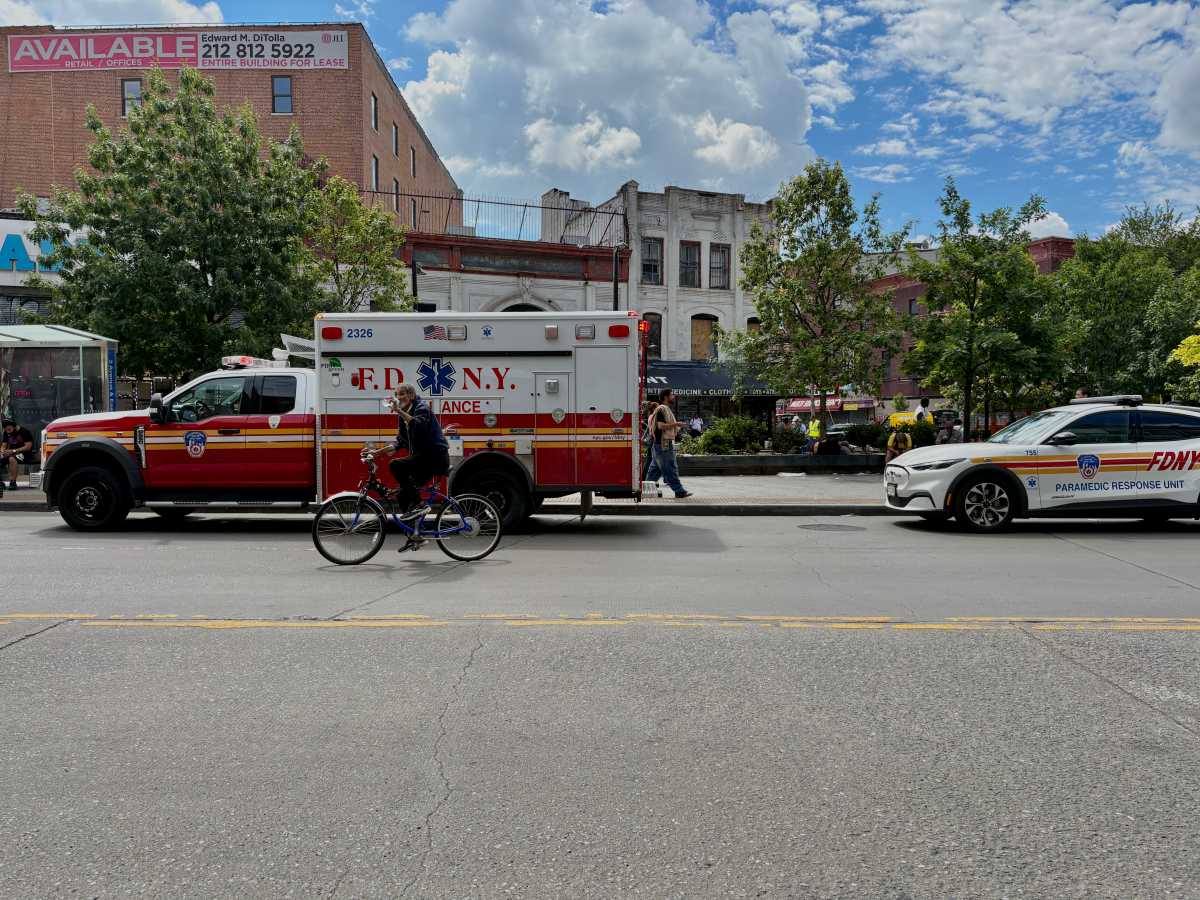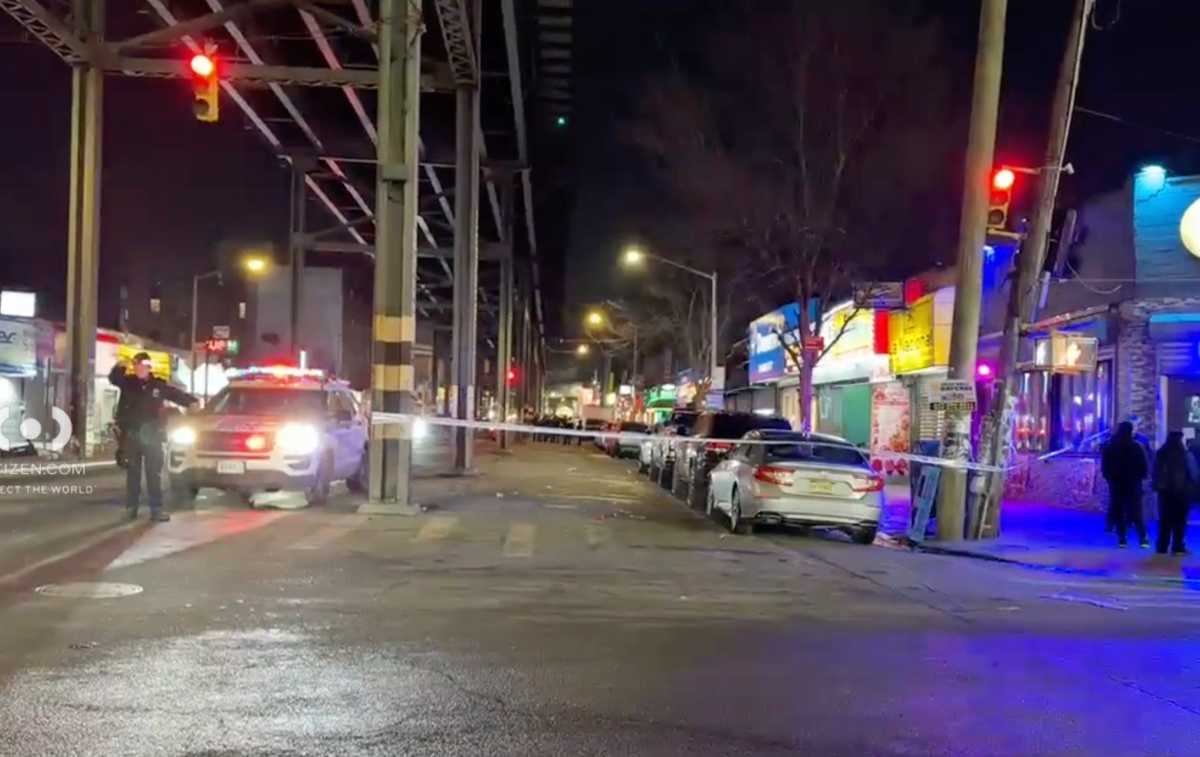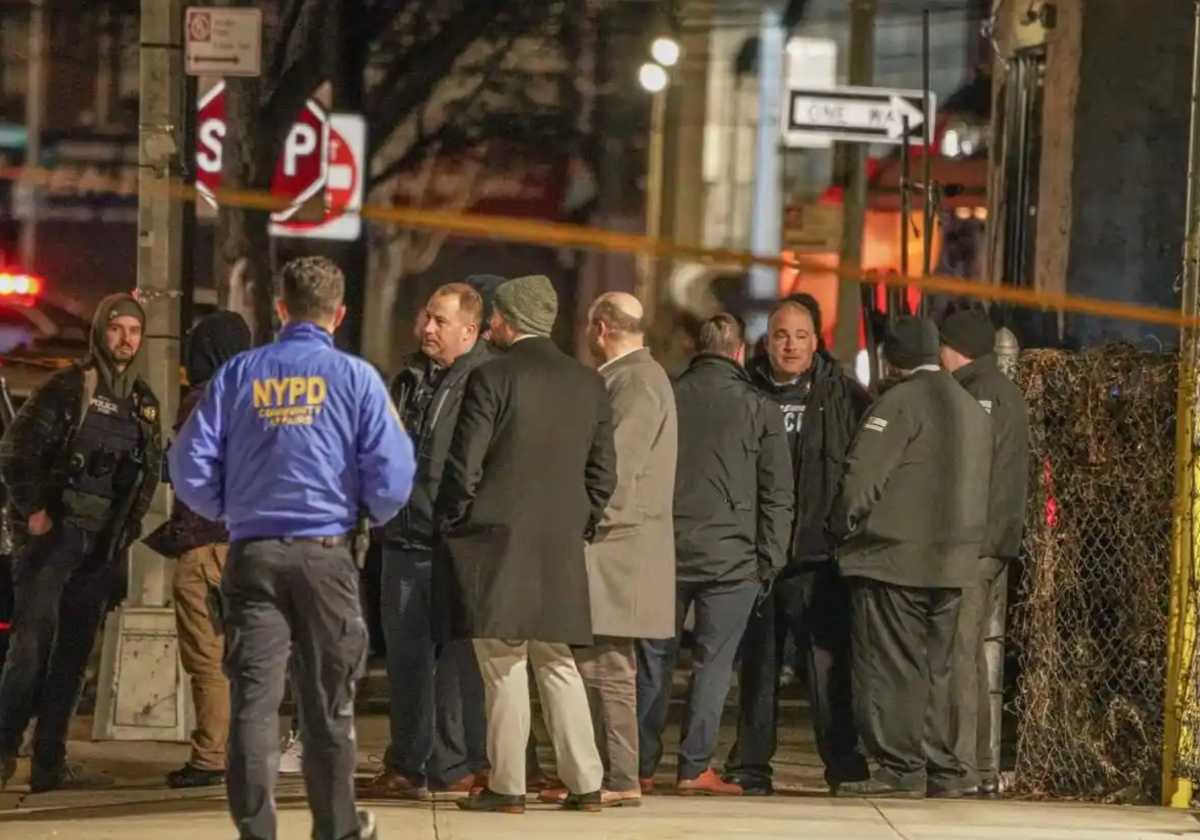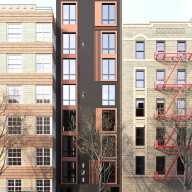Mayor Eric Adams announced Thursday, a slew of new initiatives and investments to fight substance use plaguing the Bronx and the city— among them are a new drop-in center in The Hub and a state bill that would force drug users into treatment against their will.
But Thursday’s announcement received mixed reviews from Bronx residents, some of whom told the Bronx Times that sending drug users into compulsory treatment would do more harm, while others hoped it would help those living with addiction.
Adams announced the “Compassionate Interventions Act,” The Hub drop-in center and other substance use initiatives in a speech at the Manhattan Institute. He said that public drug use in the Hub posed a threat to public health and public order and vowed that he would not let it continue.
“We must help those struggling finally get treatment, whether they recognize the need for it or not,” Adams said. “Addiction doesn’t just harm individual users; it tears apart lives, families, and entire communities, and we must change the system to keep all New Yorkers safer.”
‘Compassionate’ or compulsory?
Pedro Suarez, the Executive Director of the Third Avenue Business Improvement District, which serves the small businesses in and around the Hub, celebrated the proposed legislation. Suarez, who has been advocating for cleaning up the plaza where people frequently injected drugs out in the open, said that it was time the city took a more active role in addressing the opioid crisis in the borough, which has not seen the same improvements as the rest of the city.
“While I deeply appreciate the work that so many providers have done around harm reduction and substance abuse intervention, relying on a strictly voluntary system has serious limitations,” Suarez said in a statement. “With the rise of lethal substances such as fentanyl, we must ensure that individuals struggling with the most severe addiction get the treatment that they need so that our communities are not repeatedly exposed to trauma and blight.”
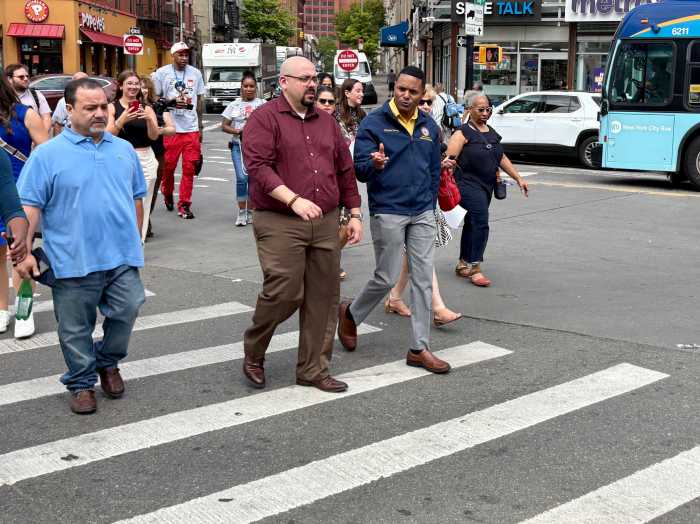
Renée Jones, who has lived in the Bronx for eight years and identified herself to the Bronx Times as a person who uses drugs, said that she didn’t believe that forcing people into treatment would be effective and that those living with substance use disorder don’t stop using drugs until they are ready.
“I think a lot of people will resist it, and that it will do more harm than good,” Jones said. “Because once again, people are out here telling us what to do.”
She was, however, happy with the idea of a drop-in center in The Hub. Adams said that the center would offer people in The Hub a place of respite with food, a place to shower and do laundry, access medical and mental healthcare and get support for drug use or homelessness.
Jones told the Bronx Times that the people who used to frequent Roberto Clemente Plaza in the Hub, which the city barricaded and cleared last month, deserved someplace else to go. The plaza was the most visible sign of the substance use crisis in the South Bronx, but many told the Bronx Times that once the city cleaned the area, they were displaced without being given any additional resources.
“It makes it look like we are bad children and we are being locked out of our home,” Jones said, referring to the plaza, which was still cordoned off on Thursday.
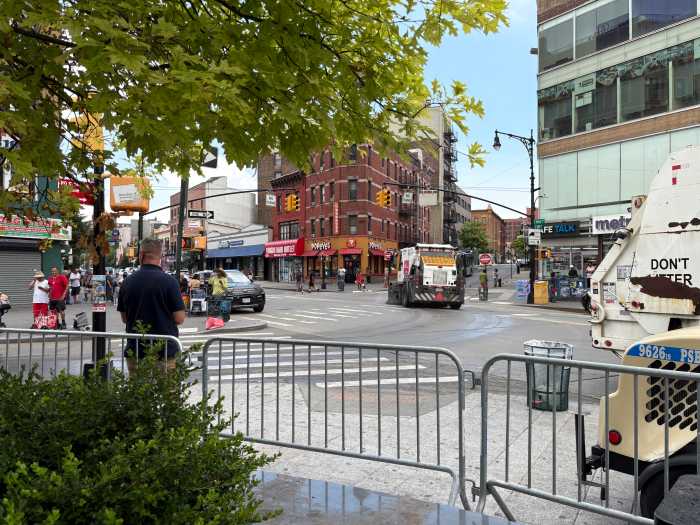
City Hall said it hopes to open the center in the coming months, but longtime residents said they were skeptical that the city would fulfill its promises.
Lenor, a woman who lives near the plaza and is a staple figure in the Hub, told the Bronx Times that she had doubts about whether the Adams administration would follow through with the drop-in center, but also said she supported a bill allowing clinicians to seek involuntary commitment for people with substance use disorder.
She said that if the city had intervened with her son, who frequently used drugs in the Hub and died of an overdose, he might still be alive.
Evidence-based Strategies
Adams said a law permitting doctors to seek involuntary commitment for patients they believe pose a danger to themselves due to untreated substance use disorder would bring New York up to date with over 30 other states that allow some type of compulsory drug treatment.
But so far, many studies have not found clear evidence that involuntary commitment for substance use disorders is effective for long-term recovery. Nonprofits and advocacy organizations like the Legal Action Network, which fights against punitive responses to addiction, strongly condemned the Mayor’s push for involuntary commitment, but celebrated the other initiatives he announced Thursday.
“Rather than doubling down on coercive measures, the City should invest in proven, evidence-based strategies that support recovery, autonomy, and community health,” LAC Senior Health Policy Attorney Christine Khaikin said in a statement “Mayor Adams also announced such initiatives as providing cellphones to individuals following an overdose, expanding the Relay peer support model, piloting contingency management, and creating a new Hub drop-in center, all of which LAC supports but strongly believes should not be coupled with forced treatment.”
Another new approach City Hall plans to launch in September is a contingency management pilot program, which will incentivize people with substance use disorders to follow their treatment programs with rewards. Other contingency management programs have used small prizes or gift cards to provide positive reinforcement for people who stick to their recovery plans. The upcoming pilot program will be operated by NYC Health and Hospitals and City Hall said it is intended to be a city-wide initiative.
Even critics of involuntary commitment measures acknowledged that initiatives like the Hub drop-in center, contingency management programs and more robust supportive services for those using drugs and lingering around The Hub, could provide a lifeline.
Advocates and residents alike said the city’s next steps will determine whether Thursday’s announcements amount to real change or simply another round of promises. Though some viewed the mayor’s plan as a long-overdue intervention in a crisis that has devastated families and small businesses in the South Bronx, others worried it marked a return to punitive tactics that would further marginalize people already struggling with addiction.

